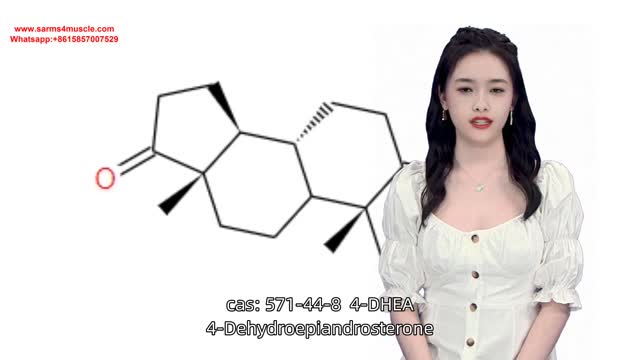Premium Only Content

cas: 571-44-8 4-DHEA 4-Dehydroepiandrosterone
cas: 571-44-8 4-DHEA 4-Dehydroepiandrosterone
DHEA (dehydroepiandrosterone) is a hormone that's naturally produced by the adrenal glands. Levels of DHEA naturally drop after age 30. Some people take DHEA supplements in the hopes that DHEA will have health benefits and prevent some illnesses. However, the evidence is mixed.
DHEA is used by some people who want to "reverse" aging and boost immunity, cognitive function, and muscle strength. For now, studies don't back up these uses. DHEA has been studied as a treatment for other conditions, ranging from cardiovascular disease to menopause to Alzheimer's. The results have been unclear.
How much DHEA should you take?
There is no standard dosage of DHEA. Some studies have used capsules dosed between 25 and 200 milligrams a day, or sometimes even higher, but it depends on the medical conditions being treated. Ask your doctor for advice.
Why do people take DHEA?
A number of studies have found that DHEA supplements may help people with depression, obesity, lupus, and adrenal insufficiency. DHEA may also improve skin in older people and help treat osteoporosis, vaginal atrophy, erectile dysfunction, and some psychological conditions. But study results are mixed and often contradictory.
Low DHEA levels are associated with aging and a number of diseases, such as anorexia, type 2 diabetes, and HIV. In older men, having low levels of DHEA is also associated with a higher chance of death. However, it's not clear that using DHEA supplements will help lower the risks of getting any diseases.
-
 23:00
23:00
Exploring With Nug
12 hours ago $6.30 earnedHis Truck Was Found Crashed in the Woods… But He’s Gone!
36.7K4 -
 27:09
27:09
MYLUNCHBREAK CHANNEL PAGE
13 hours agoDilmun: Where Life Never Ends
43.4K34 -
 LIVE
LIVE
Slightly Offensive
6 hours ago $18.98 earnedHas Trump FAILED US? The ABSOLUTE STATE of The Right Wing | Guest: Nick Fuentes
8,830 watching -
 LIVE
LIVE
AlaskanBallistics
1 hour agoI Love This Gun PodCast #16
177 watching -
 2:59:26
2:59:26
Twins Pod
10 hours agoEMERGENCY PODCAST WITH ANDREW TATE! - Twins Pod - Special Episode - Andrew Tate
116K115 -
 2:52:01
2:52:01
Jewels Jones Live ®
2 days agoTRUMP SECURES BORDER | A Political Rendezvous - Ep. 113
55.1K26 -
 25:02
25:02
marcushouse
23 hours ago $38.44 earnedStarship Just Exploded 💥 What Went Wrong This Time?!
129K63 -
 12:00
12:00
Silver Dragons
1 day agoBullion Dealer Reveals Best Silver to Buy With $1,000
78K9 -
 12:58
12:58
NinjaGamblers
13 hours ago $13.71 earnedIs This The BEST Way to Win At Roulette? 😲
122K13 -
 1:01:54
1:01:54
CharLee Simons Presents Do Not Talk
2 days agoCALIFORNIA'S DONE!
81.6K38